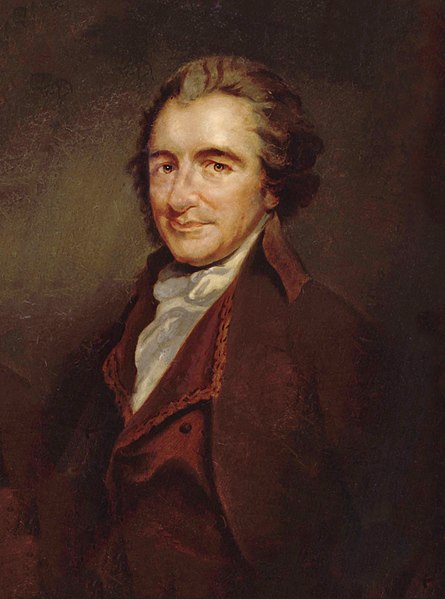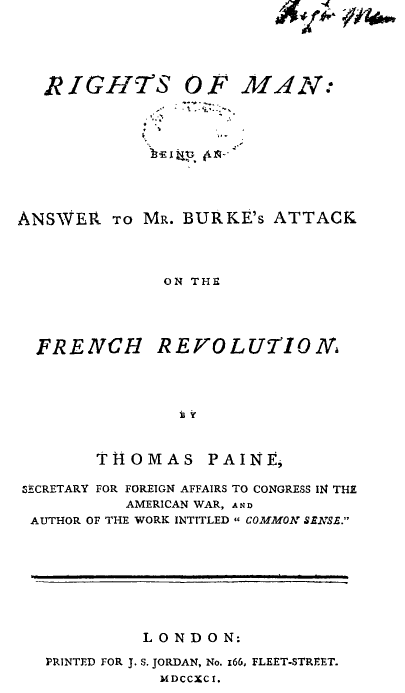"I do not know what I may appear to the world,
but to myself I seem to have been only like a boy playing on the sea-shore,
and diverting myself in now and then
finding a smoother pebble or a prettier shell than ordinary,
whilst the great ocean of truth lay all undiscovered before me."
"A share in two revolutions
is living to some purpose."
Isaac Newton poetically and (perhaps faux-)modestly claims his life's work to have been the uneducated stumbling of a young hobbyist, untroubled by the vast unknown right beside him. He lived from 1642 to 1727, and wikipedia lists him as being a physicist, mathematician, astronomer, natural philosopher, alchemist and theologian. He is commonly called either the last of the alchemists or the first scientist, or something along these lines ("Newton was not the first of the Age of Reason: He was the last of the magicians." -John Maynard Keynes). His most famous work (which he wrote entirely in Latin, just to be difficult) the Principia (or Philosophiae Naturalis Principia Mathematica) gave us the laws of gravitation and motion, proved the solar-centric view of the solar system, and basically gave us all of macro physics. His classical mechanics was basically all of physics for three hundred years, until Einstein gave us relativity and quantum mechanics.
He built telescopes, studied sound and acoustics, light spectrums, heat and cooling, apocryphally invented the cat flap, gave us a whole bunch of mathematical functions I don't understand (calculus, binomial theorem, blah). It also turns out (years after his death Keynes acquired Newton's private papers on the subject of alchemy) that science, or natural philosophy, was just a hobby for wee Newt'. His most prolific writings were on religion, alchemy and magic – all of which, as a man of his time, he took seriously. That said his most massive contribution to us all will always be his Principia. There is no possible way I can portray the importance or magnitude of this work. Largely because I feel I am probably entirely unaware of the scale. As big as I think it is, as a scientific and mathematical illiterate, I cannot fully understand the achievement. I also don't read Latin...
What I can see is that his Rules of Reasoning in Philosophy appear to be the birth of the Scientific Method, possibly the greatest ever human construction. Scientific Method has given us everything – everything. It is the reason death during childbirth is rare, the reason we live to be 90, the reason we go on holiday, the reason we go to work, the reason we don't toil and die on the land. And it began thusly in 1726:
Rule 1: We are to admit no more causes of natural things than such as are both true and sufficient to explain their appearances.
Rule 2: Therefore to the same natural effects we must, as far as possible, assign the same causes.
Rule 3: The qualities of bodies, which admit neither intensification nor remission of degrees, and which are found to belong to all bodies within the reach of our experiments, are to be esteemed the universal qualities of all bodies whatsoever.
Rule 4: In experimental philosophy we are to look upon propositions inferred by general induction from phenomena as accurately or very nearly true, not withstanding any contrary hypothesis that may be imagined, till such time as other phenomena occur, by which they may either be made more accurate, or liable to exceptions.
Scientific Method is the difference between belief in evidence (i.e. truth) and belief in faith (i.e. fantasy). It is often simplified to:
Define a question. Gather information and resources (observe). Form an explanatory hypothesis. Perform an experiment and collect data, testing the hypothesis. Analyze the dataInterpret the data and draw conclusions that serve as a starting point for new hypothesis. Publish results. Retest (frequently done by other scientists).
and it is basically thanks to Newton that we have everything. He, among many others in history, used the metaphor standing on the shoulders of giants to attribute the quality of his achievements to the work done by his predecessors. An apt metaphor with Newton being perhaps the tallest giant of all.
 Thomas Paine, a great British writer and founding father of the USA, modestly claims that his roles in the French and American Revolutions of the 18th Century, were merely living to some purpose. He published the pamphlets (at a time when all the cool kids were doing so) Common Sense arguing for the American colonies' freedom from George III and British rule; Rights of Man which states that their are natural human rights which no ruler has the right to grant or withhold (an anti-Monarchist claim which lead to his being tried in absentia and sentenced rather pointlessly to hanging); and The Age of Reason criticising religion and the Bible. Paine believed in a creator called God, but one who cannot hear or answer prayers, and cannot be found in the Bible.
Thomas Paine, a great British writer and founding father of the USA, modestly claims that his roles in the French and American Revolutions of the 18th Century, were merely living to some purpose. He published the pamphlets (at a time when all the cool kids were doing so) Common Sense arguing for the American colonies' freedom from George III and British rule; Rights of Man which states that their are natural human rights which no ruler has the right to grant or withhold (an anti-Monarchist claim which lead to his being tried in absentia and sentenced rather pointlessly to hanging); and The Age of Reason criticising religion and the Bible. Paine believed in a creator called God, but one who cannot hear or answer prayers, and cannot be found in the Bible.Rights of Man is arguably his greatest work, and the one to which we owe the most. His role as a founding father of the United States of America, and the influence his writing had on George Washington and Thomas Jefferson, have helped create some of the best aspects of this wild and unkempt, but slowly settling, global civilisation of humanity.
We hold these truths to be self evident, that all men are created equal, that they are endowed by their Creator with certain unalienable Rights, that among these are Life, Liberty and the pursuit of Happiness.
 reads the United States Declaration of Independence, stating their freedom from the tyrannical and arbitrary rule of the British Monarchy. Slowly and surely these beautiful words are becoming true across the world, and the United States can proudly claim to be playing a strong role in doing so. Gradually freedom from tyranny was exported to Europe, although it took a very long time, and had some monstrous hiccups throughout the 20th century.
reads the United States Declaration of Independence, stating their freedom from the tyrannical and arbitrary rule of the British Monarchy. Slowly and surely these beautiful words are becoming true across the world, and the United States can proudly claim to be playing a strong role in doing so. Gradually freedom from tyranny was exported to Europe, although it took a very long time, and had some monstrous hiccups throughout the 20th century.Directly after the Second World War, with the formation of the United Nations, came the Universal Declaration of Human Rights. No document can beat this in terms pure humanity. The Bible and other religious books are full of waffle which poetically, whimsically or ambiguously proscribes or condemns all kinds of behaviour, kind and abomnible alike. Yet the UDHR is unambiguous, untrammled by boundaries of culture (if your culture proscribes something forbidden by the UDHR then it is your culture that must be changed, not the document).
I've gone on much longer than intended. I think I have made my point – now I must sleep.


No comments:
Post a Comment